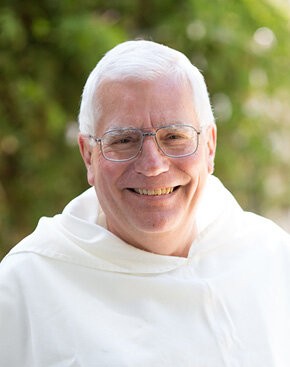
Edward Krasevac, OP
Courses Taught
- Fundamental Moral Theology (CE-2045)
- Contemporary Christology (ST-3115)
- Passion of the Western Mind (PHST-2500)
- Hermeneutics & Roman Catholic Theology (ST-2231)
- Historical Development of Christology (ST-2232)
- Natural Law (PHCE-4012)
- Confessional Ministry (CEFT-2000)
- Contemporary Christology (ST-3115)
- Interpretive Theological Application (ST-3720)
Recent Publications
- “Salvation “Thanks to” or “In Spite of” the Cross?” In New Blackfriars 93 (2011): 572-79.
- “The Intractably Hard Cases of Lethal Defense of Life: Continuing Reflections on Praeter Intentionem.” In Angelicum 87 (2010): 273-282.)
- “Clericalism and the Religious Life.” In Review for Religious 66 (June, 2007): 248-64.
From the Professor
One of my core interests in teaching is to bring my students to recognize fundamental philosophical and theological principles, and to learn to think from those principles, so that they are able to “see the forest instead of all the little trees” in their theological endeavors. In other words, my attempt is to mentor my students in a way that they learn to think theologically. I have a secondary interest as well: the primary way in which I learn is from teaching, as I regularly come to see things in new ways through my class preparations, and through actually thinking through crucial ideas with my students time and again.
I have long had a penchant also for what I consider to be the real core questions of human and Christian life, such as those concerned with basic moral principles (freedom, responsibility, intentionality, and the relation between who we are and what we do), as well as the fundamental principles of Christology: just who really is Jesus Christ in relation to God and to us, and how can the brutal death of an innocent man somehow be understood as salvific for all human beings, without glorifying suffering or making the Father a murderer (or at least a consequentialist!). I am also very concerned with how we, today, can translate the great Christian theological tradition into terms that our contemporaries find intelligible, cogent, and salvific; in other words, how we can carry forth the development of doctrine in our own period of history.
Saint Thomas Aquinas is one of my inspirations: heir to a vibrant Christian theological faith tradition, and one of the great geniuses of the Western world, he nonetheless actively searched for knowledge wherever he thought he might find it: in “pagan” Greeks such as Aristotle, or Islamic thinkers such as Avicenna. I think that it never occurred to him to be afraid of the errors he might find in these (shocking) sources because he believed at the core of his being that truth would ultimately vindicate itself because God is the Truth. He also understood that the path of human beings toward the truth is inevitably through narrow and partial perspectives, and mostly through error, in the sense that many mistakes are made along that path; Aquinas chose not to dwell on the mistakes, however, but on where the path was leading. Hence he was always open to learning something new, including from his own mistakes and those of others, and willing also to take intellectual “risks” along the path of truth. We must do the same.
Ever since I took a basic music appreciation course in college I have enjoyed listening to classical music, particularly Bach, Handel, Haydn, Mozart, Beethoven, Schubert, Dvorak, Brahms, and Chopin; I particularly enjoy the intimate emotions of chamber music, and hold the late quartets and sonatas of Beethoven in the highest regard. On a totally different note, I also enjoy poring over maps and globes, coming better to understand the geography of the world in which we live.
